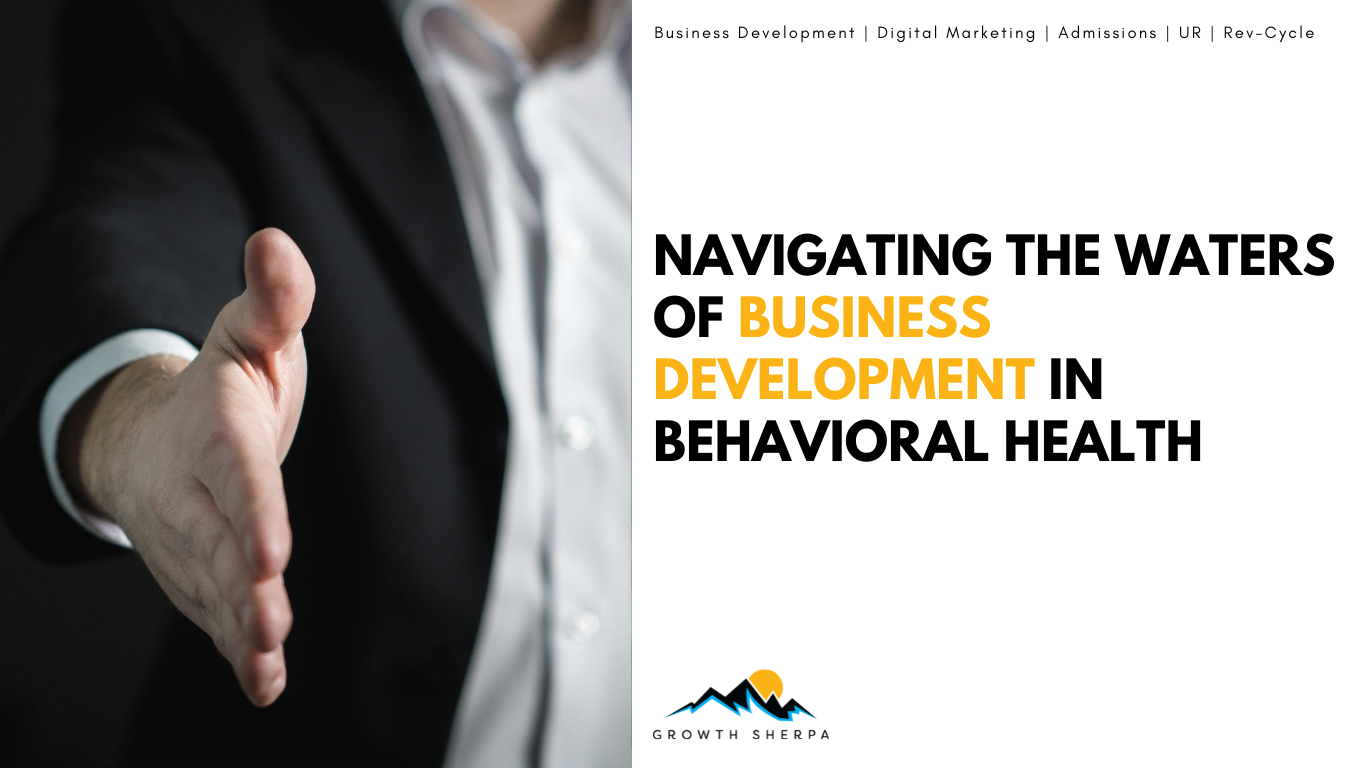As I reflect on my career journey in the behavioral health sector, I find it essential to share my experiences—both the struggles and the lessons learned—as someone who transitioned from a Recovery Specialist to a Business Development Representative (BDR). Starting this role without clear direction or a job description left me feeling lost and confused.
A Humble Beginning
I was one of those professionals who was thrown into the complex world of business development with minimal guidance. In the early days, I often found myself overwhelmed by the vague expectations of my position and unsure of how to effectively contribute to my organization. My turning point came when I joined a corporate company that invested in formal training and education for its BDRs.
This training proved to be pivotal. I gained insights into key performance indicators (KPIs), metrics, and the various verticals within the market. Understanding how to create and execute business plans not only clarified my role but also reignited my passion for making a meaningful impact in the lives of individuals in recovery.
The Power of Business Planning
One of the effective strategies I implemented was the use of quarterly business plans. These plans serve as a roadmap that keeps me accountable, outlining specific goals, metrics to measure success, and actionable steps. By breaking down large objectives into manageable chunks, I could remain focused and proactive.
Another critical element was geomapping my day-to-day activities. By visualizing my outreach efforts and the prospects I wanted to target, I was able to identify decision-makers within organizations crucial for driving business. This not only improved my efficiency but also increased my success in generating meaningful connections.
The Need for Formal Training
A significant challenge I observe in our industry is the lack of formal training and onboarding for new BDRs. All too often, individuals are promoted to these positions based on their interpersonal skills alone, without a clear understanding of their roles and responsibilities. This approach can lead to confusion and frustration, not just for the BDRs but for the organizations they represent.
Currently, the market is shifting toward an outcomes-driven data approach, where insurance companies increasingly prefer to work with providers who can demonstrate tangible results. Unfortunately, many BDRs are unfamiliar with how to utilize and implement data within their business strategies, leading to resistance against this evolving model.
The Importance of Accountability
Accountability in business development cannot be overstated. I’ve witnessed instances where BDRs remain in their roles longer than they should, typically because they are liked or seen as team members rather than for their performance. This can create inefficiencies and impede growth for the organization and its mission.
Establishing a culture that emphasizes accountability—where performance is regularly assessed and supported by clear metrics—is vital for success. By holding ourselves and each other accountable, we foster an environment where everyone can thrive and contribute effectively.
Navigating the Future
As BDRs, it is our responsibility to embrace the tools and training available to us. By actively seeking education, understanding data, and holding ourselves accountable, we can navigate the complexities of the behavioral health market more effectively. It’s not just about making connections; it’s about making meaningful, impactful connections that lead to better outcomes for those we serve.
As we move forward in this ever-evolving landscape, let us prioritize learning, growth, and collaboration to cultivate a culture of professionalism within business development in behavioral health.




